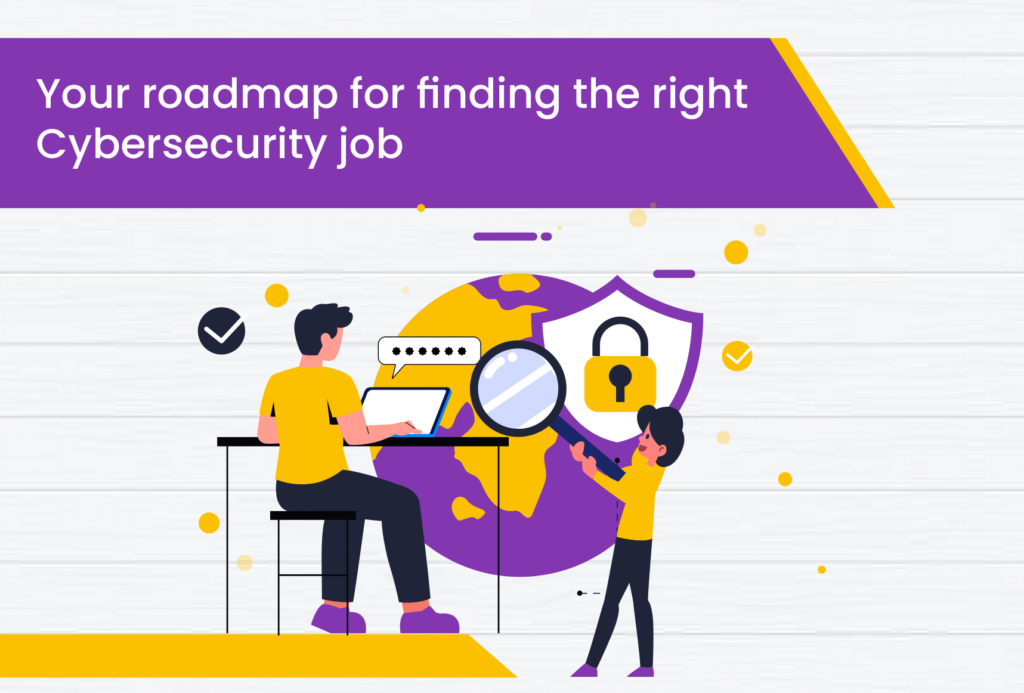Your Roadmap for Finding the Right Cybersecurity Job

Padh Le Dost
November 21, 2024
In today’s digital age, cybersecurity has become paramount. With the rise of cyber threats and data breaches, the demand for skilled professionals in cybersecurity has skyrocketed. If you are considering a career in this dynamic and rewarding field, you are on the right track.
However, breaking into cybersecurity can be daunting, especially for beginners. But fear not, as this detailed roadmap will guide you through the steps to land your dream job as a cybersecurity engineer.
Understanding the Role of a Cybersecurity Engineer
Before embarking on your journey, it is essential to understand what a cybersecurity engineer does. Cybersecurity engineers are responsible for protecting an organization’s systems, networks, and data from cyber threats.
They design, implement, and monitor security measures to ensure the confidentiality, integrity, and availability of information assets. These professionals play a critical role in safeguarding against cyber-attacks and mitigating security risks.
Developing Cybersecurity Skills
To become a cybersecurity engineer, you need to acquire a diverse set of cybersecurity engineer skills. Here are some essential skills you should focus on:
Technical Proficiency
Gain expertise in networking, operating systems, and programming languages such as Python, Java, or C/C++. Understanding how systems and networks operate is crucial for identifying vulnerabilities and implementing security measures.
Security Tools
Familiarize yourself with industry-standard cybersecurity tools such as firewalls, intrusion detection systems (IDS), antivirus software, and penetration testing tools. Hands-on experience with these tools will enhance your ability to assess and defend against cyber threats.
Risk Assessment and Management
Learn how to conduct risk assessments to identify potential security vulnerabilities and prioritize mitigation strategies. Understanding risk management frameworks like NIST Cybersecurity Framework or ISO 27001 will strengthen your ability to make informed decisions in a cybersecurity context.
Incident Response
Develop skills in incident detection, analysis, and response. Be prepared to handle security incidents effectively by creating incident response plans and conducting post-incident reviews to improve resilience.
Continuous Learning
Stay updated with the latest trends, threats, and technologies in cybersecurity. Participate in training programs, attend conferences, and join online communities to expand your knowledge and network with industry professionals.
Getting Started in Cybersecurity
Now that you understand the skills required let us delve into the steps to kickstart your cybersecurity career!
Education and Certifications
While a formal degree in computer science or cybersecurity is beneficial, it is not always a prerequisite. Many professionals enter the field through self-study and certifications. Consider pursuing certifications such as CompTIA Security+, Certified Ethical Hacker (CEH), or Certified Information Systems Security Professional (CISSP) to validate your cybersecurity engineer skills and enhance your marketability.
Hands-on Experience
Gain practical experience through internships, volunteering, or freelance projects. Look for opportunities to work on real-world cybersecurity challenges and build a portfolio highlighting your skills and accomplishments.
Networking
Networking is crucial in the cybersecurity industry. Connect with professionals on platforms like LinkedIn, attend industry events, and join professional organizations such as ISACA or (ISC)². Building relationships with experienced professionals can provide valuable insights, mentorship, and job opportunities.
Resume Building
Craft a compelling resume tailored to the cybersecurity field. Highlight your relevant skills, certifications, and experience. Consider including projects, internships, or contributions to open-source projects to demonstrate your practical abilities.
Interview Preparation
Prepare for cybersecurity interviews by researching common interview questions and practicing your responses. Be ready to discuss your technical skills, problem-solving abilities, and experience handling cybersecurity incidents. Display your passion for cybersecurity and your commitment to continuous learning.
Career Development
Once you have landed your first cybersecurity job, focus on continuous growth and development. Stay proactive in expanding your skill set, pursuing advanced certifications, and seeking opportunities for advancement within your organization or the industry.
Resources for Success
As you navigate your cybersecurity journey, leverage the following resources to support your career development!
eBooks and Online Courses
Explore digital books online from PLD covering various aspects of cybersecurity. It offers a wide range of courses on cybersecurity topics, from beginner to advanced levels.
Resume Building Support
Utilize online resources, resume writing services, or career development workshops to refine your resume and highlight your cybersecurity skills effectively.
Interview Preparation Guides
Access interview preparation guides, mock interview platforms, and online forums to sharpen your interview skills and increase your confidence.
Career Development Communities
Join online communities, forums, and social media groups dedicated to cybersecurity professionals. Engage with peers, share knowledge, and stay updated with industry news and job opportunities.
Final Thoughts
Embarking on a career in cybersecurity can be both challenging and rewarding. By following this roadmap and equipping yourself with the necessary skills, certifications, and experiences, you can position yourself for success in this dynamic field.
Remember to stay curious, embrace continuous learning, and leverage the wealth of resources available to support your career growth. With dedication, perseverance, and a passion for cybersecurity, along with the PLD digital books online, you can achieve your goal of becoming a cybersecurity engineer and contribute to making the digital world a safer place.

Padh Le Dost
February 20, 2026
Career Planning Without Pressure: A Calm Way Forward

Padh Le Dost
February 18, 2026
Resume Tips for Students and Freshers (Even If You Have No Experience)




